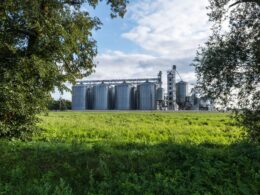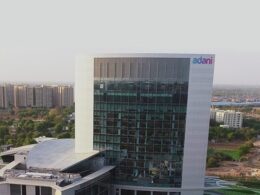Air Liquide has received a €110 million ($115 million) grant from the European Innovation Fund to advance its ENHANCE project, an initiative to produce and distribute low-carbon and renewable hydrogen using ammonia as a feedstock. The project, located in the Port of Antwerp-Bruges, Belgium, is the first of its kind in Europe and aims to significantly reduce CO₂ emissions while contributing to the EU’s decarbonisation goals.
The ENHANCE project includes the construction of a large-scale renewable ammonia cracking plant and an innovative hydrogen liquefier. Air Liquide will also retrofit an existing hydrogen production unit at the port, replacing natural gas with renewable ammonia. This transition is expected to cut over 300,000 tonnes of CO₂ emissions annually and produce hydrogen in gaseous and liquid forms for use in hard-to-abate sectors such as chemicals, refineries, heavy-duty transportation, maritime shipping, and aviation.
Armelle Levieux, a member of Air Liquide’s Executive Committee said, “The combination of ammonia cracking and hydrogen liquefaction technologies offers an additional solution to support the growth of the global hydrogen market. This project contributes to the emergence of a viable infrastructure for renewable and low-carbon hydrogen in Europe and aligns with our commitment to the energy transition and European carbon neutrality goals.”
Ammonia, composed of hydrogen and nitrogen, can be produced with a low-carbon footprint in regions rich in renewable energy such as solar, wind, and water. Its existing global infrastructure for production, transportation, and large-scale utilisation provides a robust foundation for integrating it into low-carbon energy systems.
The ENHANCE project leverages Air Liquide’s expertise, particularly the knowledge gained from its ammonia cracking pilot plant in Antwerp. By combining ammonia cracking and hydrogen liquefaction technologies, the initiative supports the development of a renewable hydrogen supply chain while minimsing its environmental impact.
In addition to reducing emissions, the project will contribute to the EU’s ambitions of carbon neutrality by facilitating the adoption of clean hydrogen across multiple industries. It reinforces innovation in renewable energy production and supports the European Union’s transition to a sustainable and low-carbon future.






















